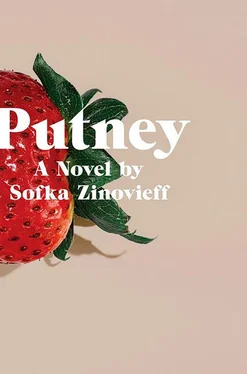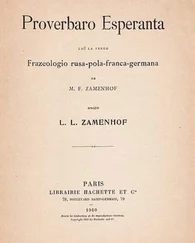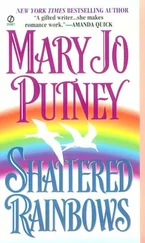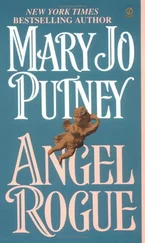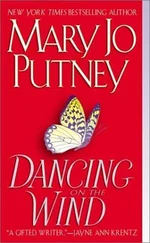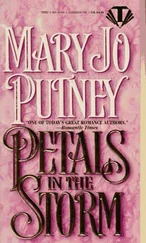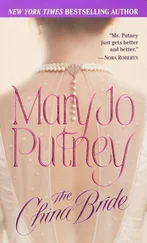‘You know, I was inspired by real events,’ said Ed. ‘I witnessed an old man’s death in Piraeus. And that was the reason I met my wife.’ How suitable that Ed’s life should unfurl like a myth, thought Ralph, and he made an appreciative noise to encourage the storyteller.
‘I’d been travelling in Greece, mostly around the islands, sleeping rough, writing poetry, falling into the hands of sirens and enchantresses. You know the sort of thing. On that day, I’d returned to Piraeus. It was early evening and I was tramping around the port, searching for a bus to the centre. Then there was the most almighty commotion and dreadful crashing noise behind me. A motorbike had run over an old man. Ghastly. I tried to do something, though it was quickly apparent that he was beyond help. Blood all over the road. The rider was a young man. He was all right, though naturally very shocked. Then up walked this exquisite young woman – suntanned limbs, dark hair, white summer frock. A vision. And she started speaking to me in perfect English!’
‘So a coup de foudre ?’ said Ralph.
‘Exactly! A bolt from the blue, Attic skies. I knew immediately that this was her . After the ambulance arrived we went for a drink. It turned out that her father was a Greek diplomat. She and her sisters had been brought up in London as well as Paris and Cairo, and she was studying law at the LSE. We stayed up all night, going from one dive to another – all near the port and full of the sort of people I put into the book. By morning I’d asked her to marry me!’
‘Did she say yes?’
‘Well, it took slightly longer for that,’ he chuckled. ‘But I knew she was the woman for me. And she agreed to see me again the next evening. So that was all right.’
‘What about the book? Did you write it straight away?’
‘Yes, it poured out in a few months. Marvellous feeling. Wish I still wrote like that. And then I got married to Eleftheria Manessi.’
Oedipus Blues made enough money for him and Ellie to buy a house, he said. After the film came out, he became not only ‘a little bit famous’, but had the financial security to live as a writer and part-time academic. Now he was creating a theatrical version and had asked Ralph to write the music. ‘Not an opera or a musical,’ he said, ‘but a play with musicians and music at its heart. The contemporary, street version of a myth.’
Ralph played some tapes of songs he’d recorded in remote mountain villages in Epirus, and for several hours the two men discussed their project: how to bring out the ancient myth and traditions of oral storytelling in a modern setting, how to give a Greek feel to songs which would be sung in English. Edmund produced a battered, blue toffee tin containing Rizla papers and a small bag of grass. He rolled a joint and, spreading out on the chaise longue, took a few deep drags and passed it to Ralph, who had made himself comfortable on the floor.
‘Sometimes I come up to work and stay here all day, dreaming.’ Both men laughed, Edmund’s high whinny sounding like a skittish horse.
It wasn’t until he was about to leave that Ralph saw Daphne again. He followed Ed, noting his lopsided lollop on the stairs and the slight limp when he walked – the legacy of childhood polio. The Greek guests had departed, and down in the kitchen Ellie was writing in a lined exercise book while the girl lay sprawled on the sofa reading a comic. Ellie said something in Greek to her daughter that sounded like a question. Her voice was low but had enough authority to make the girl get up and walk over.
‘Hello.’ She looked at him without fear, as if assessing him, and he felt almost shy.
‘Hello, I’m Ralph.’ He extended a hand and she took it with a mocking expression as though they were pantomime actors. Her hand was small but strong and suntanned, with bitten fingernails, and it seemed the most beautiful thing he had ever held. Perhaps there was a beat too long in which he kept her palm against his, but the grass was still affecting his judgement. Edmund giggled like a naughty boy and said, ‘Daphne, why don’t you introduce Ralph to Hugo? I think they’d get on.’
‘OK.’ The child twisted on her bare feet and darted out of the kitchen. ‘Come on.’ She did not even check whether he was following her up the stairs.
She entered a room that gave on to the back garden and the river. He took in large, abstract paintings on the walls and noticed a sizeable metal cage in the corner. Before he could see what was inside, Daphne opened the door and approached with a small monkey clinging to her arms.
‘He’s a capuchin.’ She bounced down on to a brown corduroy sofa and Ralph sat next to her, realising he was being assessed for his reactions and smiling like an imbecile. Hugo was less than a foot high, with a dandelion aureole of blond fur around his head, a long tail curling around his young mistress’s arm and a grimly enquiring expression. He was the sort of creature you’d see dressed in silly clothes and held by an organ-grinder in a Victorian photograph. In the absence of protocol on introductions to small primates, Ralph playfully made as if to shake hands and, to his surprise, the monkey reached out his scratchy black one in return, cackled wickedly and rapidly retracted it. Ralph emitted a small, involuntary gasp; being stoned wasn’t helping a situation that was already like a hallucination.
‘Don’t be scared!’ There was something teasing in her voice, her eyes glinting at having detected a weak spot. ‘Hugo’s just a baby – he’s only a year old.’
‘Where did you get him?’
‘My grandmother got him in Argentina when he was a newborn, but she’s ill so he’s come to us.’
‘Aha,’ he nodded stupidly.
‘She may even die,’ added Daphne. ‘And then we’d keep Hugo. Though you know, in ancient Egypt they used to bury your pet monkey with you. They pulled out their brains through their nostrils with a long hook and stuffed special herbs inside, then wrapped them up in bandages.’ Her eyes flickered to Ralph’s to gauge his reaction, while she stroked the animal’s doll-sized cranium. Hugo bared his teeth and closed his eyes as if smiling. There was tenderness between the two and Ralph was mesmerised as the girl fingered him. Without saying anything, Daphne jumped up and the last he saw of her was as she disappeared around the door, taking the monkey with her.
He was overwhelmed by this girl. But it was certainly not something sleazy or sinister. I didn’t want to do something to her, he thought. She inspired me. I felt like a child next to her. I felt free. But I was also as captive as the lowest slave with an Egyptian high priestess. She couldn’t have known what I was feeling but I wanted to lie down before her and let her walk on me.
—
It was hard to keep away. He went back a couple of days later bearing gifts. Having found an Egyptian scarab in an antique shop, he strung the turquoise beetle on a leather bootlace to make a necklace. Placing it in a miniature, metal cash-box with a gold stripe, he then wrapped that in brown paper and tied it with string. En route to Barnabas Road, he stopped at the patisserie opposite Putney Bridge station and bought an extravagant number of chocolate eclairs. His visit was planned so that school would be finished but it wouldn’t yet be time for supper or baths or the routines he remembered from his own childhood. He soon learned that strict timetables and daily rituals were not a characteristic of the Greenslay household.
In his fantasy, it was Daphne who opened the door to an empty house and invited him in for tea, and he felt a mild spasm of annoyance when a lanky teenage boy responded to his knocking.
‘Oh, hello,’ Ralph said, taking in a family resemblance to the girl whom he’d hoped for, though the youth’s features had none of the delicacy of Daphne’s.
Читать дальше
